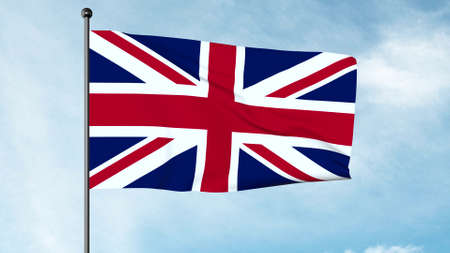Overview of Brexit and the UK Beauty Industry
When the United Kingdom officially left the European Union, it marked a turning point that rippled across multiple sectors, with the beauty industry feeling some of the strongest aftershocks. Particularly for vegan and cruelty-free brands, Brexit’s impact has been profound. The UK has long been recognised as a leader in ethical consumerism, with British men and women increasingly reaching for products that align with their values—whether that’s avoiding animal-derived ingredients or refusing to support animal testing. However, Brexit introduced new regulatory landscapes, disrupted supply chains, and shifted market dynamics. For brands dedicated to vegan and cruelty-free principles, these changes are especially significant. Understanding this context is key to grasping why Brexit is more than just a political event; it’s a real-world challenge—and potentially an opportunity—for Britain’s most ethically minded beauty labels.
Supply Chain Disruptions and Sourcing Challenges
Since the UK’s departure from the European Union, vegan and cruelty-free beauty brands have faced significant upheaval in their supply chains. Brexit has introduced new regulatory checks, customs procedures, and tariffs, which have complicated ingredient sourcing and import/export operations—especially for brands reliant on ethically sourced raw materials. The transition period saw many companies scrambling to adapt, as previously seamless cross-border trade with EU suppliers became fraught with delays and added paperwork.
Ingredient Sourcing Difficulties
Vegan and cruelty-free brands often depend on specialised ingredients not widely produced within the UK. Post-Brexit restrictions have made it tougher to source plant-based actives and cruelty-free alternatives from Europe or further afield. This has resulted in longer lead times, increased costs, and the risk of supply shortages—challenges that can affect both product availability and formulation integrity.
Import/Export Complications
With stricter border controls, beauty brands now face more rigorous inspections and increased administrative burdens when moving goods between the UK and EU countries. Delays at ports have become commonplace, impacting inventory levels and the ability to launch new products on schedule. For smaller independent brands, the cost and complexity of navigating these new processes are particularly pronounced.
Operational Cost Increases
The financial implications of Brexit are acutely felt in operational expenses. Not only are transportation fees higher due to customs delays, but additional compliance measures (such as dual product labelling for the UK and EU markets) have added to overheads. These rising costs often force ethical beauty brands to make difficult decisions about pricing or absorbing losses to remain competitive in a crowded market.
Brexit Supply Chain Impacts: A Quick Overview
| Challenge | Description | Impact on Brands |
|---|---|---|
| Ingredient Sourcing | Difficulties obtaining specialised vegan/cruelty-free ingredients from EU suppliers | Product reformulation, potential shortages, increased supplier search time |
| Customs Checks & Admin | Extra paperwork and stricter border controls | Delays, disrupted launch schedules, increased staff workload |
| Rising Costs | Higher transport fees, compliance requirements (e.g., dual labelling) | Narrower profit margins, possible price increases for consumers |
The cumulative effect of these challenges is a more complex operating environment for UK vegan and cruelty-free beauty brands. However, those able to navigate these disruptions may find opportunities to localise their supply chains or innovate with British-sourced ingredients—potentially strengthening their appeal to conscious UK consumers.

3. Changes in Regulatory Standards and Labelling
One of the most significant shifts brought about by Brexit has been the divergence of regulatory standards between the UK and the EU, especially concerning vegan and cruelty-free beauty brands. The UK is no longer bound by the EU Cosmetics Regulation, which previously provided a harmonised framework for labelling, accreditation, and ingredient safety. Instead, the UK has introduced its own version of these regulations—often referred to as UK Cosmetics Regulation—mirroring much of the EU’s existing legislation but with key local amendments that brands must now carefully navigate.
Adapting to UK-Specific Vegan and Cruelty-Free Criteria
For vegan and cruelty-free brands, these regulatory changes pose both challenges and opportunities. The definition of ‘vegan’ and ‘cruelty-free’ in product labelling is not universally standardised, and post-Brexit, the UK has the autonomy to refine or alter these definitions independently from the EU. This means that beauty brands operating within Britain must now ensure their products comply with potentially differing requirements for ingredient sourcing, animal testing policies, and certification processes when compared to their counterparts trading within Europe.
Labelling Requirements: Navigating New Territory
The post-Brexit landscape demands that brands selling in both the UK and EU markets pay close attention to labelling laws. For example, ingredients approved under UK rules may not automatically align with EU regulations—creating complexity for brands committed to transparent vegan and cruelty-free claims. Additionally, new guidance from the Office for Product Safety and Standards (OPSS) places added emphasis on clear, accurate labelling that avoids greenwashing—a practice increasingly scrutinised by British consumers.
Accreditation: Evolving Local Schemes
Accreditation bodies such as The Vegan Society and Cruelty Free International have adapted their schemes to reflect post-Brexit nuances. Brands seeking recognised certification must understand both the similarities and subtle differences in application processes, logo usage, and ongoing compliance checks required by these organisations for the UK market. While this adds an administrative layer, it also presents an opportunity for British-based brands to leverage homegrown certifications as a mark of trustworthiness for local shoppers.
Overall, while Brexit has introduced a degree of regulatory uncertainty, it also empowers British vegan and cruelty-free beauty brands to carve out a distinct identity through tailored standards and accreditations that resonate with UK consumers’ values and expectations.
4. Impacts on Consumer Preferences and Market Demand
Since Brexit, the UK’s beauty sector has witnessed a notable shift in consumer behaviour, particularly regarding vegan and cruelty-free products. British shoppers have become increasingly conscious of sustainability and ethical sourcing, with post-Brexit sentiment further amplifying these concerns. Many consumers now see their purchasing decisions as a means to express both environmental values and national identity, seeking brands that align with their ethics while supporting homegrown businesses.
Changing Attitudes Towards Sustainability
One of the most significant impacts has been the heightened demand for transparency in product ingredients and sourcing. Shoppers are more likely to scrutinise whether products are truly vegan or cruelty-free, expecting clear labelling and responsible supply chains. This trend is not limited to female consumers; British men are also showing growing interest in ethical grooming and personal care products, reflecting a broader cultural move towards sustainability.
Consumer Priorities Post-Brexit
| Priority | Description |
|---|---|
| Local Sourcing | Preference for UK-made or locally sourced ingredients to support domestic industry. |
| Sustainability | Increased focus on eco-friendly packaging and sustainable production methods. |
| Cruelty-Free Claims | Greater scrutiny of animal testing policies, with demand for third-party certifications. |
| Vegan Ingredients | Rising expectation for plant-based formulations without animal-derived additives. |
The Role of Ethical Branding
UK beauty brands are responding by emphasising their ethical credentials in marketing communications. Phrases like “Made in Britain”, “100% Vegan”, and “Cruelty-Free Certified” are now front-and-centre on packaging and promotional materials. Brands that can demonstrate genuine commitment to these principles are likely to attract a loyal following among British consumers who value authenticity over empty claims.
Market Demand: Opportunities & Risks
The evolving landscape offers opportunities for brands willing to adapt to these preferences. However, it also presents risks—consumers are quick to call out greenwashing or misleading claims, especially on social media platforms popular in the UK, such as Instagram and TikTok. For vegan and cruelty-free beauty brands operating post-Brexit, success will hinge on building trust through transparency, local engagement, and ongoing innovation in ethical product development.
Opportunities for Innovation and Local Sourcing
While Brexit has certainly brought its share of obstacles, it has also served as a catalyst for ingenuity within the UK’s vegan and cruelty-free beauty sector. Facing new trade barriers and supply chain disruptions, many brands have found themselves rethinking their approach to formulation, packaging, and sourcing. This climate of uncertainty has pushed businesses to look inward, fostering a renewed emphasis on local innovation and British craftsmanship.
Formulation Innovations Driven by Necessity
The post-Brexit landscape has made it more challenging—and costly—to import certain ingredients from the EU. As a result, UK beauty brands are increasingly investing in research and development to identify alternative ingredients that are both effective and ethically sourced from within Britain. This shift has not only allowed them to maintain their vegan and cruelty-free credentials but has also spurred the creation of unique, distinctly British formulations that set them apart in a crowded market.
Packaging: Reducing Waste, Supporting Local Producers
Packaging is another area where brands are innovating in response to Brexit’s challenges. With longer lead times and higher import costs for packaging materials, there’s been a notable pivot toward using locally sourced, recyclable, or biodegradable packaging options. This commitment not only reduces environmental impact but also resonates strongly with eco-conscious British consumers seeking transparency and sustainability in their grooming routines.
Building Stronger Relationships with British Suppliers
The need for greater supply chain resilience has encouraged beauty brands to prioritise partnerships with domestic suppliers. By shortening supply chains, companies can better manage costs, reduce delays, and support the local economy. This local-first approach is becoming a core part of brand identity—emphasising quality, traceability, and a genuine connection to the UK’s rich heritage in grooming and skincare.
In summary, while Brexit’s challenges are undeniable, they have inspired vegan and cruelty-free beauty brands in the UK to innovate boldly—creating products that champion local sourcing, sustainable practices, and homegrown creativity. For discerning gentlemen committed to ethical grooming, this means more opportunities than ever to support pioneering British brands that reflect both personal values and national pride.
6. Future Outlook for Vegan & Cruelty-Free Beauty Brands in the UK
Predictions for the Post-Brexit Landscape
As the dust settles following Brexit, the future of vegan and cruelty-free beauty brands in the UK appears both challenging and promising. The regulatory changes and trade barriers have undoubtedly posed difficulties, but they have also opened up new avenues for innovation and growth. Looking ahead, it is likely that British brands will further distinguish themselves by championing transparency, sustainability, and ethical sourcing—values that continue to resonate with local consumers and increasingly with international audiences.
Opportunities for Growth and International Competitiveness
The UK’s departure from the EU offers a unique opportunity for vegan and cruelty-free brands to redefine their identities on the global stage. By leveraging “Made in Britain” as a mark of quality and ethical standards, brands can capitalise on growing international demand for sustainable grooming products. There is significant potential to expand into emerging markets where interest in ethical beauty is rising rapidly. Additionally, digital innovation and e-commerce can help brands reach customers worldwide, bypassing some of the traditional barriers created by Brexit.
Recommendations for Navigating the New Terrain
To thrive in this evolving landscape, brands should focus on several key strategies: investing in robust supply chain management to ensure product integrity; staying abreast of changing regulations both domestically and abroad; and forging strong partnerships with local retailers and distributors. Emphasising education around vegan and cruelty-free certifications can further build consumer trust. Finally, maintaining a distinctly British sense of style—combining classic grooming traditions with modern ethical values—will help brands stand out amid global competition.
Conclusion: Embracing Change as an Opportunity
While Brexit has introduced undeniable challenges, it also presents a pivotal moment for UK vegan and cruelty-free beauty brands to innovate, adapt, and lead by example. By embracing change and focusing on quality, ethics, and authenticity, these brands can not only survive but flourish—setting new benchmarks for men’s grooming and self-care around the world.


